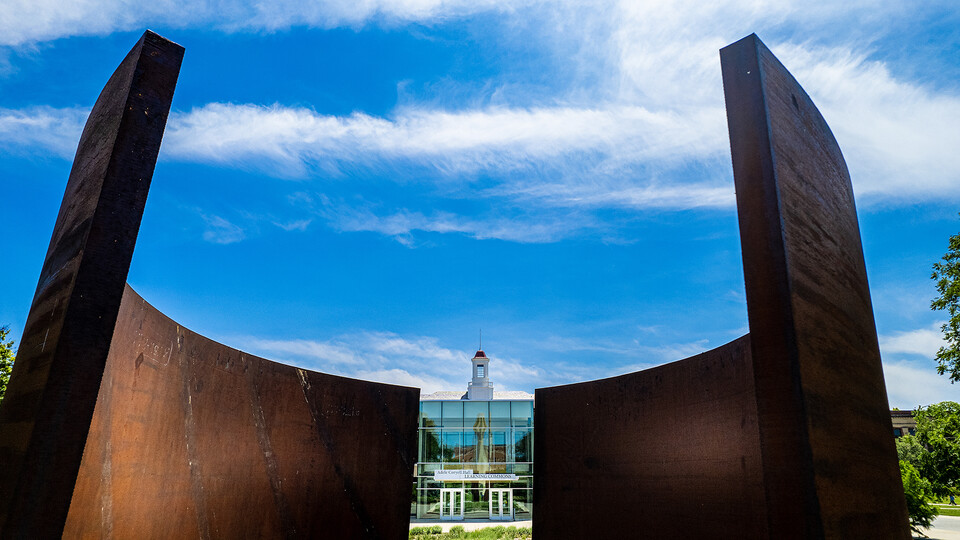
A sampling of stories in 2019:
Chigozie Obioma, assistant professor of English and internationally recognized author, released his sophomore effort, “An Orchestra of Minorities,” on Jan. 8. Described as a modern take on Homer’s “Odyssey,” the book received much positive press. Obioma was interviewed for the New York Times’ By the Book feature on Jan. 3. He also discussed the novel’s origin and themes on NPR’s “Weekend Edition” and in Time magazine, The Guardian, the Houston Chronicle and the Los Angeles Review of Books. Reviews of “An Orchestra of Minorities” appeared in more than 20 major media outlets, and the novel made numerous recommended-reading lists throughout the year. The book also made the shortlist for the prestigious Man Booker Prize in July, garnering more news coverage. Writer Salman Rushdie called the novel one of his favorite reads of 2019.
- - -
The Targeted Observation by Radars and UAS of Supercells (TORUS) project — featuring four drones, an NOAA P3 manned aircraft, eight mesonet trucks equipped with meteorological instruments, three mobile radar systems, a mobile LIDAR system and three balloon-borne sensor launchers — ran from May 15 through June 16 across a large sweep of the Great Plains. Adam Houston, associate professor of Earth and atmospheric sciences, coordinated the effort, which involved more than 50 scientists and students from Nebraska, the University of Colorado Boulder, the University of Oklahoma, Texas Tech University and the National Severe Storms Laboratory. The goal of the project is to better understand supercell thunderstorms, which spawn the most-destructive tornadoes, to improve forecasting and ultimately save lives. Stories on the project appeared in five Nebraska media outlets and more than 20 others nationwide, including Gizmodo, Nature, The Washington Post’s Capital Weather Gang blog (1, 2), Weather Underground and WeatherNation.
- - -
A new study from the university suggesting that Americans are making themselves sick over politics made headlines in September. The study was authored by Kevin Smith, Olson Chair and professor of political science at Nebraska; John Hibbing, Foundation Regent University Professor of political science at Nebraska; and Matthew Hibbing, associate professor of political science at the University of California, Merced. Nearly 40% of Americans surveyed for the study said politics is stressing them out, one in five reported losing sleep and 4% said they’ve had suicidal thoughts because of politics. The research is the first to comprehensively examine the physical and emotional costs of paying attention to and participating in political discourse. Stories on the research appeared in more than 240 media outlets, including the Boston Globe, CBC Radio’s Quirks and Quarks, Fast Company, NBC News, Newsweek, NPR, the Miami Herald, Today.com and The Wall Street Journal.
- - -
The university has earned an $11.8 million grant from the National Institutes of Health to support the new Rural Drug Addiction Research Center. Kirk Dombrowski, John Bruhn Professor of sociology at Nebraska, will lead the center. Stories on the center appeared in 14 Nebraska media outlets — including KETV, the Lincoln Journal Star and Omaha World-Herald — and several others across the country.
- - -
Herman Batelaan, physics and astronomy, May on Phys.org, new study pointing to non-Newtonian, quantum force that influences the flight of electrons; October in Popular Mechanics, reaction to experiment demonstrating quantum superposition.
- - -
Dawn Braithwaite, communication studies, September in Deseret News, family formation; December in JSTOR Daily, gendering of holiday labor.
- - -
Jennine Capó Crucet, English and ethnic studies, September in Vox, race, college, Disney World and her new book of essays, “My Time Among the Whites”; November in Miami New Times, displacement, culture shock and her new book.
- - -
Bedross Der Mattossian, history, March in Newsweek, analysis of Turkish President Recep Tayyip Erdogan’s first Armenian tweet.
- - -
Christopher Fielding and Tracy Frank, both Earth and atmospheric sciences, January and February in the Daily Mail, Metro, Phys.org and more, new study suggesting that Earth’s largest extinction likely took plants first.
- - -
David Harwood, Earth and atmospheric sciences, January in Gizmodo, Nature, New Scientist, Scientific American, Smithsonian.com and more, discovery of tiny animal carcasses in subglacial Antarctic lake.
- - -
Kate Lyons, biological sciences, April on Earth.com, how humans have brought about the sixth extinction; September on Before It’s News, Ecology Daily News, Phys.org and more, new study suggesting that the extinction of large mammal species likely drove survivors apart.
- - -
Rupal Mehta, political science, June in Fair Observer, U.S.-Iran relations, the United States’ withdrawal from the Iran nuclear deal and the Trump administration’s Iran strategy.
- - -
Laura Muñoz, history and ethnic studies, July in The Washington Post, why many Latinos in the United States aren’t fluent in Spanish.
- - -
Heather Richards-Rissetto, anthropology, March on NBCNews.com, how technology is transforming archaeology.
- - -
Philip Schwadel, sociology, March in Pew Research Center’s Fact Tank, how Americans’ drinking habits vary by faith; Schwadel and Aleksandra Sandstrom, June in Fact Tank, how lesbian, gay and bisexual Americans view religious institutions.


